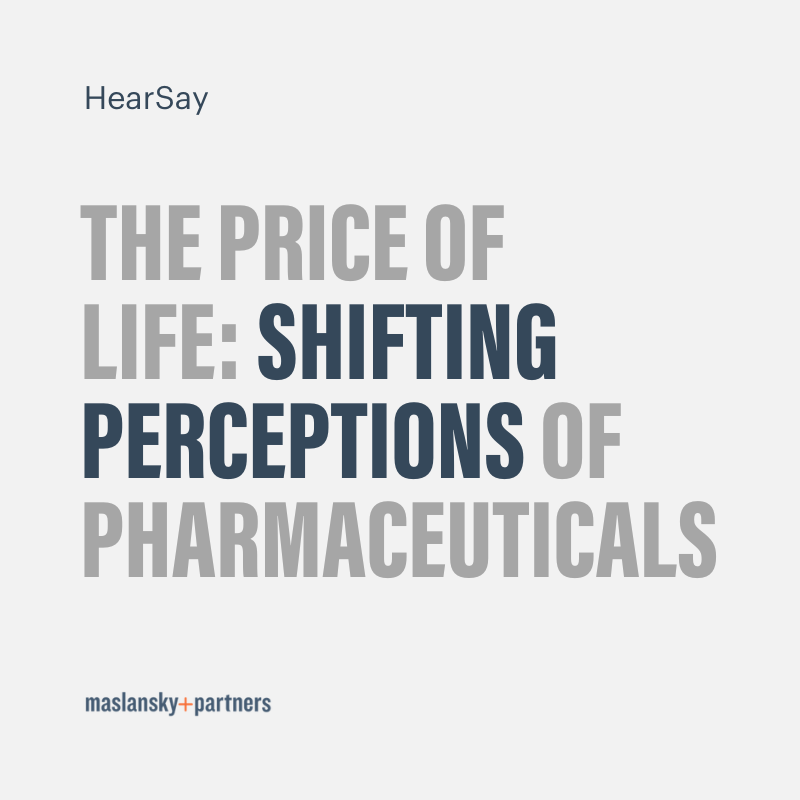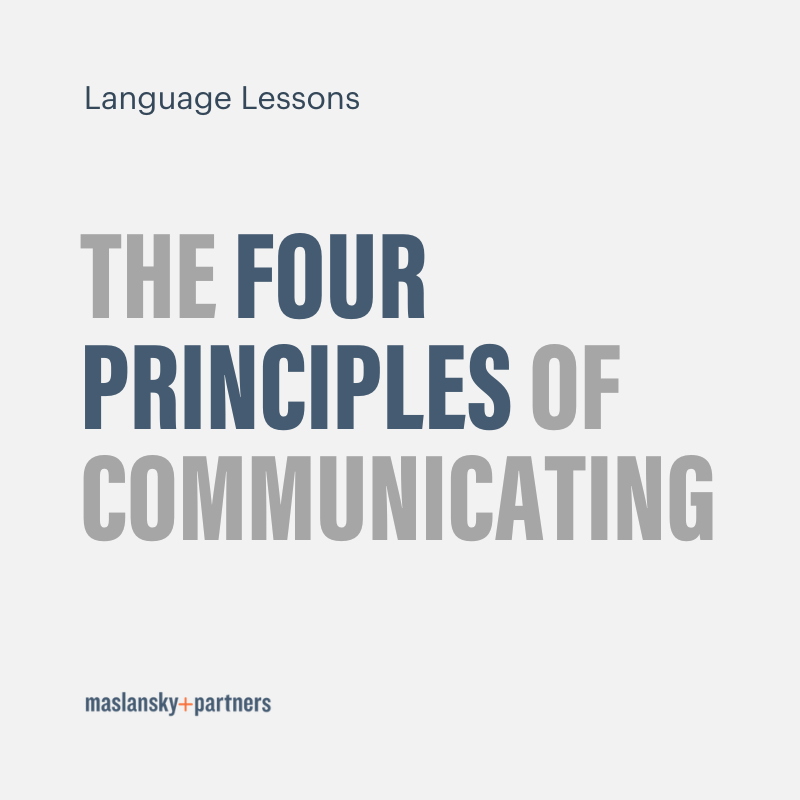
In this episode, CEO Michael Maslansky, and Partners Lee Carter and Katie Cronen delve into the pharmaceutical industry’s enduring reputation struggles and propose strategies for reshaping the industry’s narrative.
Our take on the most, and least,
effective communication



In this episode, CEO Michael Maslansky, and Partners Lee Carter and Katie Cronen delve into the pharmaceutical industry’s enduring reputation struggles and propose strategies for reshaping the industry’s narrative.

Check out this insightful piece from Senior Vice President for more on how maslansky + partner’s “4 Ps” can transform everyday communications into the secret weapon of customer service, with some fantastic before-and-after examples of how to do customer comms right.

In this Language Lesson, m+p CEO Michael Maslansky focuses on four key principles to help you build trust among your audiences.

In this episode of Hearsay, Michael Maslansky, Lee Carter, and Ben Feller explore different moments of crisis and share their insights on what the challenges of corporate speak are, what it cost corporations that do nothing, and the different solutions to manage a crisis.

In this Language Lesson, m+p CEO Michael Maslansky shares six quick tips on how to communicate your ESG, or responsible business initiatives, without running into a landmine with your language.

Check out our latest m+p Language Lesson, a short video with smart insights about communicating more effectively.